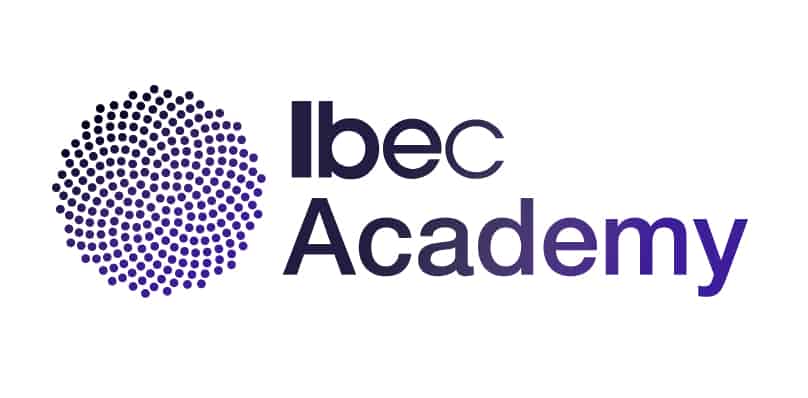Organisations need their managers, at all levels, to lead in new ways as they now need to manage hybrid and remote teams, while driving performance writes Jenny Hayes, Head of Ibec Academy.
Developing inclusive leaders is critical to the success of every organisation; especially with many people working from home or in a hybrid manner.

Pictured: Jenny Hayes, Head of Ibec Academy
In terms of how people feel about their jobs, the role of the direct manager is very significant. These critical leaders need to know how to get the best from their people, by building the strengths of every member of their team.
Ibec’s 2023 CEO survey found 51% of those surveyed said retaining and attracting talent was still a concern. Keeping the right people and leading them in the best way possible, will give organisations a competitive advantage.
Developing the skills of those who manage and lead people is also one of the key recommendations in the Workplace Learning Report 2023(LinkedIn Learning), for the year ahead. Managers are the people who see the team performing day to day and are best placed to help each person to identify what they do well, and the areas they need to develop further.
Ibec’s 2022 Learning and Development survey also highlighted that 95% of respondents identified management skills as their number one priority,with leadership skills a close second. Managing performance and employee engagement ranked third and fourth respectively.
Therefore, developing inclusive leaders is critical to the success of every organisation; especially with many people working from home or in a hybrid manner.
The demands of today’s working environment have left many managers feeling increased pressure from above and below.
Key Skills to Develop:
Focus on clarifying expectations
Team members can’t perform at a high level when they are confused as to what they are supposed to do, and confused employees are more likely to look for other work and eventually leave when they can. Leaders need to clearly communicate the organisation’s values and strategy in the new world of work, particularly when physical separation is likely to also contribute to this.
Communication and being present
The ability to listen to and understand the people in the team, as well as helping each one to achieve more than they thought they could achieve, differentiates good managers from great managers. Those who focus on the emotional connection with others and are really ‘there’ and present, demonstrate future leader attributes.
As a manager, it is empathy and real compassion for people, while self-regulating personal emotions, that enables connections to develop.
Leadership
The demands of today’s working environment have left many managers feeling increased pressure from above and below. In 2023, leading organisations will provide support and training to mitigate the widening managerial skills gap, clarifying management priorities in areas such as building relationships and inclusive leadership and giving the right levels of autonomy at the right time.
Emotional Intelligence
As a manager, it is empathy and real compassion for people, while self-regulating personal emotions, that enables connections to develop. It is this capacity for true empathy that sets great managers apart from those who purely manage others.
The cornerstone of forming a true bond with another person involves seeing a situation from another’s point of view along with an ability to recognise personal emotions and to respond in a positive way. Leaders of the future need to develop this skill to a greater degree if they are going to attract and retain top talent.
Digital literacy and adaptability
As technology continues to play an increasingly important role in the workplace, managers must be digitally savvy. They must be adaptable and quick to learn new technologies, ensuring data and AI informs decision making, productivity and strategic decision making. The ability to adapt quickly to change and to learn quickly are core skills for all managers in the years ahead as they support their teams to do the same.
In conclusion, the importance of skills such as clarifying expectations, communications and being present, leadership, emotional Intelligence, digital literacy, adaptability and openness to learning are critical for people managers of the future. Those who can develop these skills will be better equipped to navigate the complex and rapidly changing business environment, and to lead their teams to success in the future. The role of the manager has never been more important.

